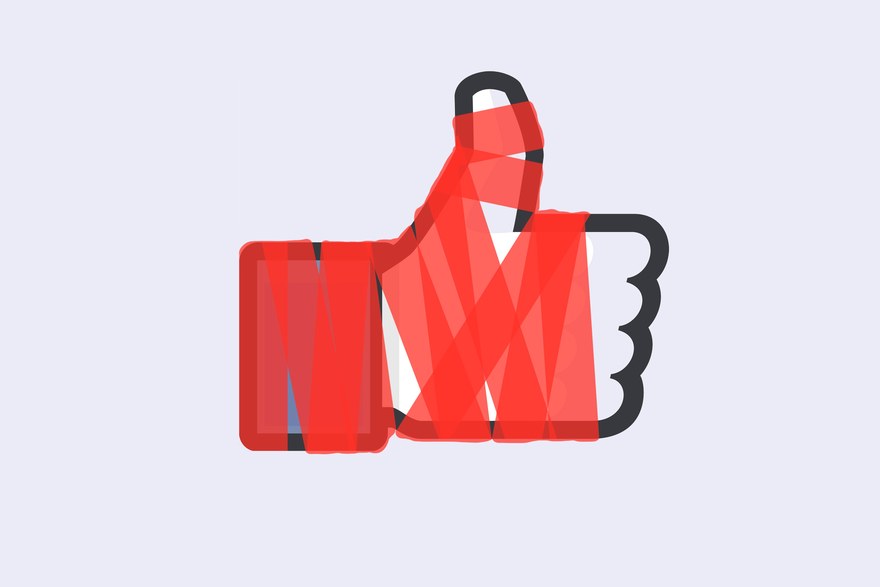Morgan Golliver, News Editor
A month after news broke that the personal data of over 87 million Facebook users was obtained by Cambridge Analytica, a British analytics firm, Facebook shares have dropped almost 18 percent and a movement to delete Facebook has spread.
The data breach has led to concern from users about their online privacy, while others are not as surprised an incident like this occurred.
Austin Givens, an assistant professor of cybersecurity at UC, explained he was not surprised by the news because collecting data is “how Facebook makes its money.”
“The news from Facebook about Cambridge Analytica confirms what we already knew: Facebook makes money from selling data about users’ activity on the platform,” Givens said. “Facebook has no financial incentive to let users control their own data because that will eat into their ability to make money selling user data.
“What I do find shocking is that a similar breach, or misuse or disclosure of Facebook user data had not taken place sooner. Also, users should not be too concerned about the data that Cambridge Analytica used because Facebook already had this data anyway.”
Givens pointed out that there is no way to fully protect yourself on social media, but there are some precautions that may help.
“There are zero ways to guarantee complete protection for users across social media accounts,” he said. “That is impossible and unrealistic. So, just do the obvious stuff that we tell people to do all the time — namely, employ a strong password and two-factor authentication if it is available, don’t click on shady links and don’t download sketchy files,” Givens said. “I see no reason for people to delete their social media accounts. I mean, if it makes them feel better about themselves, that’s super. But, you’re not going to earn any medals or prizes for deleting your account.”
Givens suggested that Facebook change their business model to avoid another incident from happening.
“Facebook CEO Mark Zuckerberg mentioned in his Congressional testimony that there will always be some free version of Facebook, which suggests that there may be a ‘Facebook premium,’ or something along those lines in the future,” Givens said. “Picture this: much like Spotify, a music-streaming app, there may one day be a ‘free’ version of Facebook that is littered with ads and a ‘premium’ version of Facebook that is ad-free but which costs users $4.99 a month and offers robust privacy controls.”
Sophomore Tristan Martin, who is studying cybersecurity, was also not surprised about Facebook mishandling user data but thinks social media users should be concerned.
“While social media exists to share information and experiences, it was never intended to influence political views in this manner, nor was social media intended to profile and categorize us without prior consent to do so,” Martin said. “I do have a Facebook account currently. I’d like to see more legal action play out before I totally remove my account altogether, but I’ve definitely considered it.”
Martin also suggested ways for users to be more careful about what they do online.
“Take an honest, good look at what you post, as well as who can see the posts you make,” he said. “Facebook and Cambridge Analytica had to pull the information from somewhere. From a targeted ad perspective, do as much purchase browsing away from Facebook and social media as often as possible to minimize the amount of advertisements showing up in your feed.”
Junior Tom Crowley did not know much about the incident, but from his lack of activity on Facebook, he has not considered deleting his account.
“I haven’t thought about deleting my account because I do not have anything extremely personal or identifying on my Facebook,” Crowley said. “For the people who already shared identifying information on their Facebook, I think it’s too late to do anything and deleting the account will have no effect because the information is already out there, so if they chose to delete there account, it’s up to them, but I believe it won’t make a difference.”
Junior Allie Leounis also does not see the point of deleting her account as the data will still exist.
“While the data might have been mishandled, data has already been viewed by the government (NSA) as it is their job to view data for any suspicious activity,” Leounis said. “To me, it’s not a huge deal, or a big enough deal for me to delete my entire platform. Deleting my profile does not delete the data from every place.”
Leounis also mentioned that apps that connect to Facebook are another source for collecting data.
“Every app Facebook connects with is required to ask permission to store data in order to give an output that is adequate to what a user wants but to a point there’s nothing users can do besides not using those platforms,” Leounis said.


















![President Todd Pfannestiel poses with Jeremy Thurston chairperson Board of Trustees [left] and former chairperson Robert Brvenik [right] after accepting the university's institutional charter.](https://uticatangerine.com/wp-content/uploads/2023/10/unnamed.jpeg)





















































































































